With experts across the WILDLABS community working with every type of technology and in every imaginable environment, our platform is a great place to find advice and resources on choosing what tools are right for your conservation project. Whether you're in the market to try a new camera trap model, want to experiment with drones for the first time, or need help weighing the pros and cons of data management tools, there's someone in the WILDLABS community who can help you make a smart and informed choice!
The Community Base is our general gathering group. It's the place where we cover more general, big picture topics in conservation technology - ones that don't fit neatly into our other groups. If you don't know where to post something, just post it in this group. Our moderators will move it if needed!
At our Community Base, you'll find updates from the WILDLABS team on upcoming events and opportunities, and have the chance to shape our programs and platform with your opinions. And most importantly, the Community Base is also home to our Welcome to WILDLABS thread, the best place to introduce yourself to us and the community. Stop by and tell us what you're working on!
Whether you're new to WILDLABS and want to know where to begin, or you're a longtime member looking for a handy bank of resources, our Getting Started on WILDLABS thread will be your one-stop guide to getting the most out of our platform.
Want to find out more about WILDLABS? Check out our recent community call:
Header image: Ana Verahrami/Elephant Listening Project
Group curators
- @TaliaSpeaker
- | She/her
WILDLABS & World Wide Fund for Nature/ World Wildlife Fund (WWF)
I'm the Executive Manager of WILDLABS at WWF

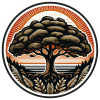

- 23 Resources
- 64 Discussions
- 32 Groups
- @alexrood
- | she/her
WILDLABS & World Wide Fund for Nature/ World Wildlife Fund (WWF)
I'm the WILDLABS Communications and Community Management Associate Specialist at WWF-US

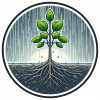



- 157 Resources
- 95 Discussions
- 6 Groups
No showcases have been added to this group yet.
The University of Queensland
Passionate about using technology and data to solve conservation issues.
- 0 Resources
- 2 Discussions
- 9 Groups
- @ldbraunholtz
- | she/her
(Tropical) forest ecologist w interest: biodiversity, camera traps, community led conservation & more. Passionate about inclusive nature for all.
- 0 Resources
- 0 Discussions
- 10 Groups
I am a dedicated professional with a bachelor of science in Wildlife management. I have extensive experience working in research as a Research Assistant and currently serve as a Human-Wildlife Conflict Mitigation Supervisor.


- 0 Resources
- 4 Discussions
- 5 Groups
Biologiste
- 0 Resources
- 0 Discussions
- 12 Groups
- @moorerp
- | he/him
Oregon State University
Avian/Conservation ecologist at Oregon State University and Wildlife Corridors (in Patagonia, Arizona, USA)

- 0 Resources
- 3 Discussions
- 3 Groups
- 0 Resources
- 0 Discussions
- 11 Groups
Arribada Initiative
Director at Arribada, a UK-based conservation technology research & development organisation


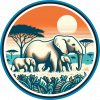
- 2 Resources
- 101 Discussions
- 12 Groups
Botswana Predator Conservation Trust



- 0 Resources
- 85 Discussions
- 10 Groups
- @iska1818
- | iska
nature nerd, leopard and eagle lover
- 0 Resources
- 0 Discussions
- 6 Groups
- @kalado
- | Kalado
I am Brazilian and a software developer. I have 20 years of experience in the field and I am currently the CTO of Log Nature, a company specialized in creating solutions for the environmental sector.
- 0 Resources
- 1 Discussions
- 8 Groups
I work in conservation on integrating the technology out there for custom solutions for partners.
- 0 Resources
- 0 Discussions
- 22 Groups
- @adanger24
- | She/Her
Arribada Initiative
Senior Project Manager and Field Specialist


- 2 Resources
- 16 Discussions
- 10 Groups
In September 2024, we asked you to participate in the 2024 Network Survey and share your experience with WILDLABS and ideas for the future of the network. Here’s what we learned and how we’re addressing your feedback.
27 March 2025
While the WILDLABS Awards 2025 submissions are in the final round of judging, meet the panel that is currently reviewing the shortlist of applicants.
26 March 2025
Call for nominations for the Tusk Conservation Awards 2025
20 March 2025
WWF's Arctic Community Wildlife Grants program supports conservation, stewardship, and research initiatives that focus on coastal Arctic ecology, community sustainability, and priority Arctic wildlife, including polar...
7 March 2025
Discover WILDLABS' new feature: self-led learning courses. Get started with or dive deeper into conservation technology through structured courses designed by independent experts, verified members, and the WILDLABS team.
5 March 2025
WILDLABS was honoured to partner with CITES once again and represent the global conservation technology sector at World Wildlife Day 2025. Invoking this year’s theme “Wildlife Conservation Finance: Investing in People...
4 March 2025
Article
If you're on Bluesky, give us a follow at @wildlabs.bsky.social
3 March 2025
The Smithsonian’s National Zoo and Conservation Biology Institute (SNZCBI) is seeking an intern to assist with multiple projects related to conservation technology for wildlife monitoring. SNZCBI scientists collect data...
3 March 2025
Last week the Funding and Finance group crossed the 100 member mile stone. A big thank you to everybody who participated in achieving this, either by becoming a member or by posting in the group. Besides the numbers...
25 February 2025
Article
As Stephanie moves on to explore new horizons, we want to honour and celebrate her impact on this community, and welcome Talia Speaker in her new role as Interim Executive Manager.
20 February 2025
Article
You’re invited to the WILDLABS Variety Hour, a monthly event that connects you to conservation tech's most exciting projects, research, and ideas. We can't wait to bring you a whole new season of speakers and...
13 February 2025
MFMC offers grants up to €10K (small grants) and grants from €20K to 200K or more ( large grants)
29 January 2025
September 2025
event
October 2025
event
event
event
November 2025
event
February 2026
April 2026
event
| Description | Activity | Replies | Groups | Updated |
|---|---|---|---|---|
| Hej all, I updated my question to include discussion about the tariffs as well. |
|
Community Base, Funding and Finance | 4 months ago | |
| I have posted about this in a different group, but I love boosting the impact of my communication through use of visuals. Free graphics relating to conservation technology... |
|
Geospatial, Climate Change, Community Base, Connectivity, Funding and Finance, Open Source Solutions | 4 months ago | |
| Bienvenido Maxi! |
+9
|
Community Base, Latin America Community | 4 months 2 weeks ago | |
| Wow, thanks for sharing @Nycticebus_scientia. Would love to read further papers on these topics if folks have them! |
|
Community Base, Ethics of Conservation Tech | 4 months 2 weeks ago | |
| Hello everyone,Thank you all for your contribution!You can read some updates about this project in this post.Julia |
|
Acoustics, Community Base, Data Management & Mobilisation, Open Source Solutions | 4 months 3 weeks ago | |
| Better later than never, opening a thread to share with you some statistics about the applications received for The Boring Fund 2024 as we... |
|
Community Base | 5 months ago | |
| Yep see you on friday |
+3
|
Geospatial, Acoustics, AI for Conservation, Camera Traps, Citizen Science, Community Base, Data Management & Mobilisation, Emerging Tech, Open Source Solutions, Protected Area Management Tools | 5 months 1 week ago | |
| Good afternoon Stephanie!It is sad to see you go, but very exciting to hear that you will be on adventures new very soon! I wish you all the best in your future endeavours and... |
+6
|
Community Base | 5 months 1 week ago | |
| Good morning JocelynThank you very much for your comment, this is proving to be very useful advice and thank you so much for setting me on the right path!! This is very exciting!!... |
|
Animal Movement, Citizen Science, Human-Wildlife Coexistence, Marine Conservation, Drones, Community Base, Geospatial | 5 months 1 week ago | |
| Hi, Thank you for your message I think there's some kind of application for this app not by itself by complementing technologies like NABIT, mentioned in an earlier comment.... |
|
Emerging Tech, Community Base | 5 months 1 week ago | |
| I love the emails that lead me here. |
|
Community Base | 5 months 1 week ago | |
| It's great to see so much interest in presenting at this webinar. We have also received interest through direct messages and meetings that we've happened to have had. Thank you... |
|
Open Source Solutions, Community Base, Funding and Finance | 5 months 3 weeks ago |
Presenting at the IUCN Congress? Share your event details
16 August 2016 4:30pm
26 August 2016 7:35pm
On behalf of the United States Department of State, I'd like to invite all interested conservationists, technologists, and others to take part in-person or online in a conservation technology event centered around the upcoming Zoohackathon!
On Friday, September 2 at 1:00 - 1:30 pm in the U.S. Pavilion at the World Conservation Congress, Undersecretary of State Cathy Novelli will host a group of leading wildlife officials, including CITES Secretary General John Scanlon and Association of Zoos and Aquariums Executive Director Kris Vehrs, for a conversation about Zoohackathon and conservation technology generally. We'll show off the recently developed Wildlife Witness app and then answer a few questions solicitied from YOU via WildLabs.net!
Please reply to this thread, write me directly, or follow up with other Zoohackathon threads on WildLabs to ask your conservation tech questions to this group of senior officials. Before the event, we'll pull a few of these questions and ask our panel, film the responses, and provide film and transcript follow-ups on WildLabs.
And if you can join us at the event in Hawaii, we'd love to see you! Then stick around for Jane Goodall's talk immediately following.
Thanks!
DeMark
Zoohackathon Global Coordinator, U.S. Department of State, zoohackathon@state.gov
27 August 2016 1:19pm
Hi @StephODonnell and others,
I'll be joining NOAA, Pew, Walton etc for a workshop on "Application of Monitoring, Control and Surveillance (MCS) Tools for Marine Protected Area (MPA) Enforcement" (session number: 10303; room 307AB; September 2, 2:30-7pm).
My part will be to present on a project that Stimson is launching ahead of the Our Ocean Conference called Secure Our Oceans, focused on technology and innovation for ocean security, including IUU (partnership with National Geographic). Check out www.secureoceans.org
J
Loud noises! We've reached 1000 members!
10 August 2016 4:10pm
Are you working on an inspiring tech project? NT100 nominations now open!
5 August 2016 10:38am
CASTING AMERICA'S GREATEST MAKERS! SPECIFICALLY LOOKING FOR WILD LIFE CONSERVATION TOOLS/INVENTIONS.
24 June 2016 9:14pm
Solar Impulse 2 completes first ever Atlantic crossing by solar plane
23 June 2016 10:00am
May Meetup: Wolf detectors, Multispectral Cameras and Gorilla Radios
24 May 2016 2:13pm
Trophy hunting and #tech4wildlife
3 May 2016 1:30pm
Going into Business for Wildlife Conservation
13 April 2016 12:31pm
Sat 2 Apr: Science Makers: Wildlife and conservation technologies
29 March 2016 2:24pm
Social Tech Seed: Applications now open
23 March 2016 3:59pm
What do you do in your spare time?
2 March 2016 11:04am
Indianapolis Prize Finalists announced
9 February 2016 4:31pm
New Groups - what's in development and what would you like?
14 January 2016 3:02pm
New article about WILDLABS.NET: Where Technology and Conservation Meet
24 December 2015 4:33pm
Second Tiger Cub Dies in Crimea Zoo After Blackout
7 December 2015 10:31pm
8 December 2015 12:11pm
Hi Sofia,
While there is a argument that the death of Bengal Tigers at a zoo in Crimea could potentially be viewed wildlife crime, your original post was unclear about how this was relevant to a professional community that is focused on collaborating and sharing ideas about conservation technology. I would argue that technological innovation might not be the most important element for finding a solution to the problem you have identified. Rather, there are political, social and economic factors that must be addressed as a higher priority, and if addressed effectively, will negate the need for a complex technological solution to this issue.
That being said, I welcome any community member who might be interested to continue the discussion below.
Cheers,
Stephanie
8 December 2015 12:42pm
Hi, Stephanie
"WILDLABS.NET is a community of conservationists, technologists, engineers, data scientists, entrepreneurs and change makers. Together, we share information, ideas, tools and resources to discover and implement technology-enabled solutions to some of the biggest conservation challenges facing our planet. Join the Community to share your knowledge, explore ongoing projects, ask questions and identify major questions and needs. This community is a centralised space for field based conservationists to connect directly with technology experts, to share their challenges and source new ideas for solutions. Connecting with users on the ground will help technologists and innovators to test ideas in field environments, and adapt systems that can accelerate conservation gains. The problems faced by our planet cannot be solved by people working in silos. Become part of theCommunity and work together to build the solutions." (from WILDLABS.NET front page)
Bengal tigers (especially white ones) are identified as endangered species. Blackouts can happen anywhere.. So, as this is a community based on technological solutions, discussions, and sharing ideas and collaborating, I believed someone could have an idea about what can we, as conservationists, do, in order to prevent such loses of endangered species in the zoos, in the future. I'm less interested in politics when it concerns the lives of innocent animals suffering from imperfect conditions in the zoos etc. Any loss of endangered species, anywhere in the world, is a wildlife crime, because we can not afford to let our children live in the world where there's no elephants, rhinos or bengal tigers etc.
On the contrary, this is exactly what I've been saying, that technological innovations (ideas, projects) are exactly what could we all seriously regard in order to solve such problem that happened to the animals in the Crimean zoo. For example, zoos areas could have better equipment with alternative energy generators, or some innovative energy generators. In case of a blackout for example (man-made, natural, technological), in some country for example, it immediately puts at risk the zoos |and the safety and security of its animals|(and not only, but here we discuss environmental issues), for example if it's a cold country: Finland, Russia, Ukraine, Canada etc, on my opinion, I think it would be better if the zoos be equipped with alternative power generators. So, if anyone in the community, have an idea what kind of innovations could be used for the zoos (all over the world) I would be happy to read.
Thank you,
With love,
Sofia
France24.com video segment on wildlife conservation technology
4 December 2015 7:51pm
7 December 2015 11:55am
Thanks for posting Dave - it's a neat overview of lots of different projects. I hadn't seen the SMART hook before, so worth the watch!
Bengal tiger cub dies of cold at Crimea zoo hit by power cuts.
4 December 2015 6:22pm
Bengal tiger cub dies of cold at Crimea zoo hit by power cuts.
4 December 2015 5:36pm
Rare friendship between a tiger and a goat!
4 December 2015 5:29pm
wildtech.mongabay.com is a great resource
2 December 2015 10:40pm
3 December 2015 2:19pm
Thanks for the link - yes, I agree Mongabay's WildTech areas is a great resource for anyone interested in keeping up to date with the latest conservation tech news. Sue Palminteri's article is facinating and is definitely worth a read. The video showing the daily movement of elephants is particularly interesting (see the screenshot below) - it was a case study Katherine Chou of Google.org spoke about in her Fuller Symposium address as well. That they're getting close to real time monitoring is very exciting - it would have been amazing to have that capacity in other projects I've been involved with.
The key take-aways you highlight match a lot of what came up in the Fuller Symposium and other discussions about HWC. The consensus from Wired in the Wild - Can technology save the planet? was that no, it cannot. It is simply a very useful tool that, when used appropriately, could have significant impacts in the challenges conservation is attempting to tackle. Numerous speakers drove home the point that technology is not and should not be the starting point; we need to be technology agnostic. We must start by understanding the challenge and then looking at what (if any) technology might help to address it given the circumstances.
The Elephants and Bees approach is a great example of why we need to start with challenge rather than the technology. Sometimes the best solution is the low tech approach. Nilanga Jayasinghe highlighed this in her thought piece about HWC - giving a similar example of work WWF is doing in Nepal:
'During a recent visit to Nepal, I visited rural villages where wild elephants often raid rice fields during harvest season. The communities had installed electric fences but this tool didn't always succeed on its own. Elephants are smart and persistent: they had learned to break the fence’s electric current, and then the fence itself, by using trees to push over the supporting stakes. To solve this problem, we worked with farmers to dig fish ponds in front of the fences as an additional obstacle. Adding an additional barrier not only made it harder for the elephants to get into the fields, it also gave the communities more time to respond and drive elephants away. This simple solution has not only reduced elephant raids, but has also improved local livelihoods from the sale of the fish grown in the ponds.'

Frequently Asked Questions
30 October 2015 5:43pm

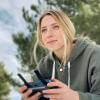


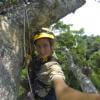



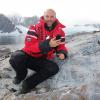

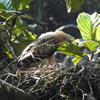



















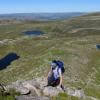












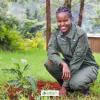





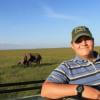
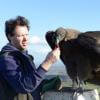

26 August 2016 3:54pm
Hi all
We are running a session on IUCN's decision support tools (mostly databases) for addressing invasive alien species. Many of the tools have come about due to mandates from CBD, and in partnership with other organisations.
Species Conservation Pavilion
4 September 2016
19:30 - 21:30
Details can be seen here - https://portals.iucn.org/congress/session/12436
Many thanks